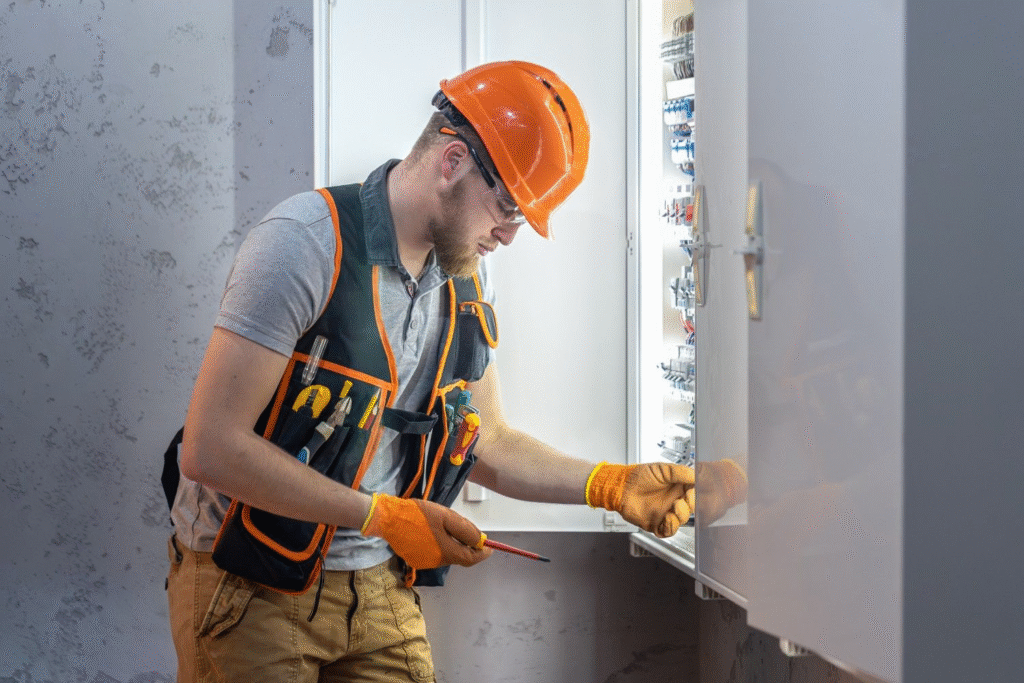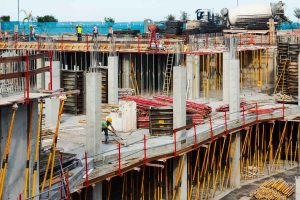Installing air conditioning in homes and businesses has become increasingly popular as summers grow warmer and people seek greater indoor comfort. Modern systems provide consistent cooling and, in many cases, heating, making them versatile for year-round use. However, air conditioning units consume significant amounts of electricity, making proper electrical safety checks essential before installation. Ignoring a property’s electrical requirements can lead to performance issues, potential hazards, and unnecessary costs. Qualified electricians often work alongside heating engineers to ensure installations are safe, efficient, and compliant. This blog explains why electrical checks are so important and what to expect before installation.
Understanding the Electrical Demands of Air Conditioning
Air conditioning systems are powerful appliances that place substantial demands on an electrical circuit. A modern split system, for example, requires dedicated power supply lines, while ducted systems can consume even more energy. Portable units are lighter on power consumption but still require stable connections to avoid overloading sockets.
Older properties, particularly those with outdated wiring, often struggle to handle the additional load placed by an air conditioning system. Circuits designed decades ago may lack the resilience to cope with today’s high-powered appliances, leading to overheating or tripped breakers.
A professional installation begins with assessing the property’s electrical infrastructure. Only qualified electricians should test load capacity, wiring conditions, and fuse boxes. These checks are essential to ensure the system runs smoothly and safely once installed.

Why Electrical Safety Checks Are Essential
Skipping electrical checks may seem like a cost-saving shortcut, but the risks are significant. Air conditioning systems are not only expensive investments but also energy-intensive machines that rely heavily on consistent electrical flow.
Without proper checks, the following issues can occur:
- Overloaded circuits – leading to overheating, blown fuses, or melted wiring.
- Fire hazards – faulty or weak wiring under strain can ignite.
- Tripped breakers – disrupting both comfort and productivity.
- Damage to equipment – costly repairs or replacements of AC units.
Electrical safety checks also ensure compliance with UK building regulations and health and safety standards. These rules are in place to protect people, properties, and appliances. In addition, a correctly wired and tested system is more energy-efficient, reducing long-term running costs.
Ultimately, these checks offer peace of mind. Property owners know their systems are operating in a safe environment, free from hidden electrical dangers.
The Role of Central Heating Engineers in Air Conditioning Installations
In many UK households, central heating engineers Cardiff professionals are already trusted for boiler servicing, heating repairs, and system upgrades. Increasingly, these same engineers offer air conditioning installation, as heating and cooling are closely linked in modern property management.
Heating engineers understand the compatibility between central heating and cooling systems, especially when integrated climate control is required. They assess how pipework, thermostats, and control systems interact with air conditioning units, ensuring seamless functionality.
Electrical safety remains a key concern. Engineers often collaborate with electricians to confirm that consumer units, earthing, and circuit capacities are suitable for new installations. This combined expertise ensures that customers benefit from systems that are both safe and efficient.
By working with qualified professionals who have a dual understanding of heating and cooling, homeowners avoid costly mistakes and benefit from comprehensive service.
Key Electrical Checks Before Installation
Before an air conditioning system is installed, a set of structured electrical inspections should be carried out. These checks identify weaknesses, confirm suitability, and ensure compliance. The following are essential:
- Circuit Load Test – Determines whether the property’s circuits can handle the additional demand of an air conditioning system without risk of overload.
- Fuse Box / Consumer Unit Inspection – Ensures the fuse box has the right capacity and RCD (Residual Current Device) protection for safety.
- Earthing and Bonding Check – Protects against electrical shocks by confirming that the system is correctly grounded.
- Wiring Condition Report – Highlights outdated, frayed, or damaged wiring that could present a hazard.
- Socket and Power Supply Assessment – Identifies whether sockets are safe and correctly positioned, ruling out the use of unsafe extension cables.
- Energy Efficiency Review – Ensures the electrical system supports the air conditioning unit’s efficiency, avoiding wasted energy and higher bills.
These checks form the foundation of a safe, long-lasting installation.
Consequences of Skipping Electrical Checks
The consequences of ignoring safety checks can be severe. In the short term, homeowners may experience frequent tripped breakers, poor system performance, or overheating cables. Over time, these issues can escalate into far more serious risks.
Electrical fires are among the most dangerous threats. They often begin unnoticed within walls or consumer units before spreading quickly. Aside from safety, improper wiring can reduce the lifespan of the air conditioning unit, forcing costly repairs or early replacement.
Furthermore, warranties are often voided if units are installed without appropriate safety certification. This means any future breakdowns could leave the owner with full repair costs. The small investment in safety checks is far more affordable than dealing with the aftermath of electrical failures.
Legal and Insurance Implications
Electrical safety is not just about convenience or performance—it is a legal responsibility. UK regulations require that all electrical work in domestic and commercial properties complies with Part P of the Building Regulations. This covers design, installation, and maintenance to protect people from electrical hazards.
Insurance companies also place significant emphasis on compliance. In the event of an accident, an insurer may refuse a claim if it is proven that the air conditioning system was installed without proper electrical checks. This can leave property owners with substantial financial liabilities.
By ensuring installations are carried out by certified professionals, property owners remain compliant with both legal and insurance requirements.

Choosing Qualified Professionals
When planning air conditioning Cardiff installations, selecting the right professionals is vital. Homeowners and business owners should consider the following when hiring:
- Look for NICEIC-certified electricians who are qualified to conduct safety inspections and installations.
- Choose central heating engineers, particularly those with experience in integrated heating and cooling solutions.
- Always request credentials, references, or certifications to confirm competence.
- Avoid cheap, unqualified labour—professional expertise is an investment in safety and long-term system performance.
By combining the knowledge of heating engineers and electricians, property owners gain comprehensive coverage for both comfort and safety.
Conclusion
Electrical safety checks are the unsung heroes of any successful air conditioning installation. They ensure that systems run efficiently, prevent hazards such as fires or electrocution, and protect investments through compliance with regulations and warranties. The involvement of skilled electricians and reliable central heating engineers ensures that heating and cooling systems work in harmony while operating within safe electrical limits.
Investing in these checks is not simply a precaution; it is an essential step that protects property, lives, and the long-term value of the installation. For those seeking safe and professional installation, AO Builders Cardiff remains a trusted name for delivering high-quality service with safety at its core.



